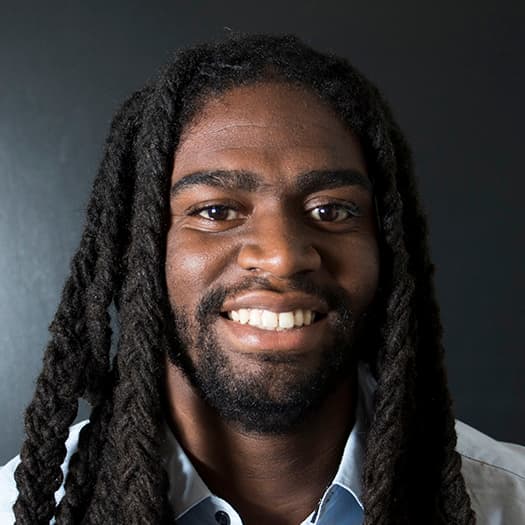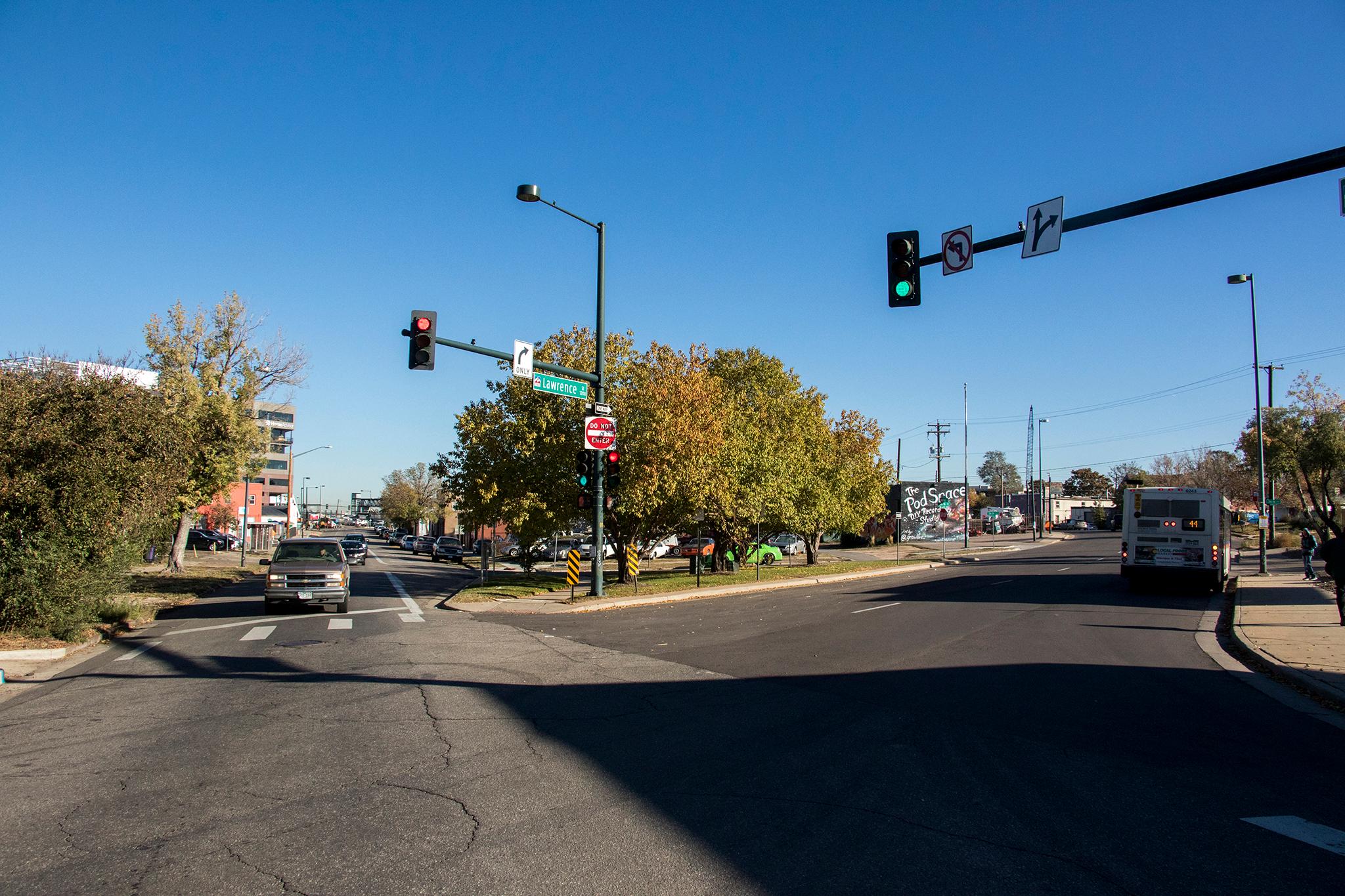A proposed project in the Cole neighborhood, stretching from 36th to 37th Avenues between Marion and Downing Streets, would bring a grocery store, a sizeable number of housing units and a rearrangement of streets including turning Downing and Marion into two-way streets and entirely eliminate a curved part of Lawrence Street.
The project is slated to create approximately 175 units, with 10 percent of those being designated as affordable. Those affordable units will be capped at 60 percent of the area median income, which Councilman Albus Brooks said that would mean they would be reasonable for those making between $15 and $20 an hour.
Developer Andrew Feinstein, managing partner at EXDO and owner of the Tracks nightclub and EXDO Event Center, described at a meeting of the Cole Neighborhood Association last week three community concerns that he said his project would tackle head-on: bringing affordable housing, ending a food desert, and creating a safe, pedestrian-friendly neighborhood.
His development team is currently trying to get the area changed to a more pertinent and applicable zoning standard so the land can be zoned to better meet the needs of the development, but Feinstein has been adamant that the zoning change is not necessary for him to accomplish his project -- rather that the changes would be in the best interest of stakeholders in the project and the residents of the neighborhood.
He told Denverite that he could, for example, build a 15-story office tower on the spot if he would like, but this project, he said, is focused on meeting the needs of the community.
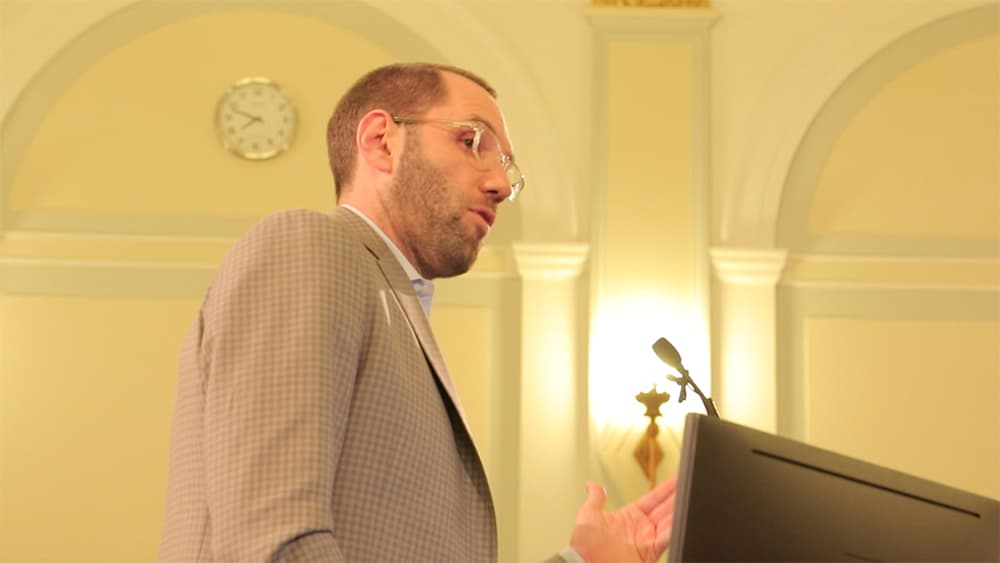
Housing is a top priority for the neighborhood.
Some residents are concerned that the development will fundamentally reshape an already rapidly changing neighborhood. For Diane Mahoney, who has lived in Denver for 49 years, this is another example of the city becoming overdeveloped in ways that’s making the area unaffordable.
"I think Denver is being overdeveloped and it's a shame to see an old neighborhood like this get pushed out, no one can afford to live here," Mahoney said while getting in her car after a session at a gym near the site of the proposed development.
Community advocate and city council candidate Candi Cdebaca said she's concerned that there are still plenty of members in the Cole community making a lower hourly wage than the figures quoted by Brooks, who she's challenging in May's election. She also said that adding a sizable number of market-rate units will attract those that can afford those prices, and drive the AMI upwards, making the housing even less attainable for those making minimum wage for instance.
"We're talking about 15 an hour as if that's the minimum wage, that's not even the minimum wage," she said. "There’s plenty of people in minimum wage jobs in this neighborhood and that was the only place people could live in."
Samuel Busby, a resident of 54 years in the neighborhood, said he's conflicted about the change in the housing landscape the development would bring. He said he believes it will be a positive for those like himself who remember the neighborhood being a tough area to live in and says he could stand to see it get a facelift. But he remains concerned that adding development will continue to drive his neighbors out of the area.
Brooks told his District 9 constituents at the Cole meeting that it’s important not to think of affordable housing in silos. He said that one project, like this one, is not going to be capable of fulfilling of the neighborhood’s housing needs.
He also made sure to point to other affordable developments that have come and are coming to the area, like Mile High Ministries’ newest housing. They will install more than 80 units which are all marked as affordable and will range somewhere between 30 and 60 percent of the area’s AMI.
Cole is in one of Denver's food deserts.
Residents there don’t have adequate access to quality and fresh food items. Over the years, residents have frequently asked for a local grocery store. But while a grocery store is slated to be a part of the development, without a stated name of the grocer, some residents are concerned that the grocery store may never come, or may be the type of store residents would not consider affordable.
Feinstein said that he and his team have the grocery store lined up, but that the change in zoning would be a helpful step towards finalizing the arrangement. Brooks said there will be a developer agreement attached to the proposed zoning changes that would further ensure that a grocery store would indeed be included in the development.
Hamzah Azim, a 20-year-old Cole resident, said on Friday afternoon while chatting near Clark's Auto Body that he feels that an additional grocery store is no longer needed with the recent addition of Natural Grocers.
“I wouldn't say there's a need for another grocery store, because if you prefer going to Natural Grocers there's one on Brighton Boulevard and a lot of people don't mind the 15-minute drive, maybe even 10 depending on traffic, to Walmart off of Quebec,” Azim said.
"This makes this neighborhood more compact, and personally, we've had this business right here for 20 years," he said, referring to Clark's, "and to see it just get knocked down and thrown out the window would be a little sad."
One other consideration: The developers have also said that the grocer plans on employing residents hiring 100 people from the area.
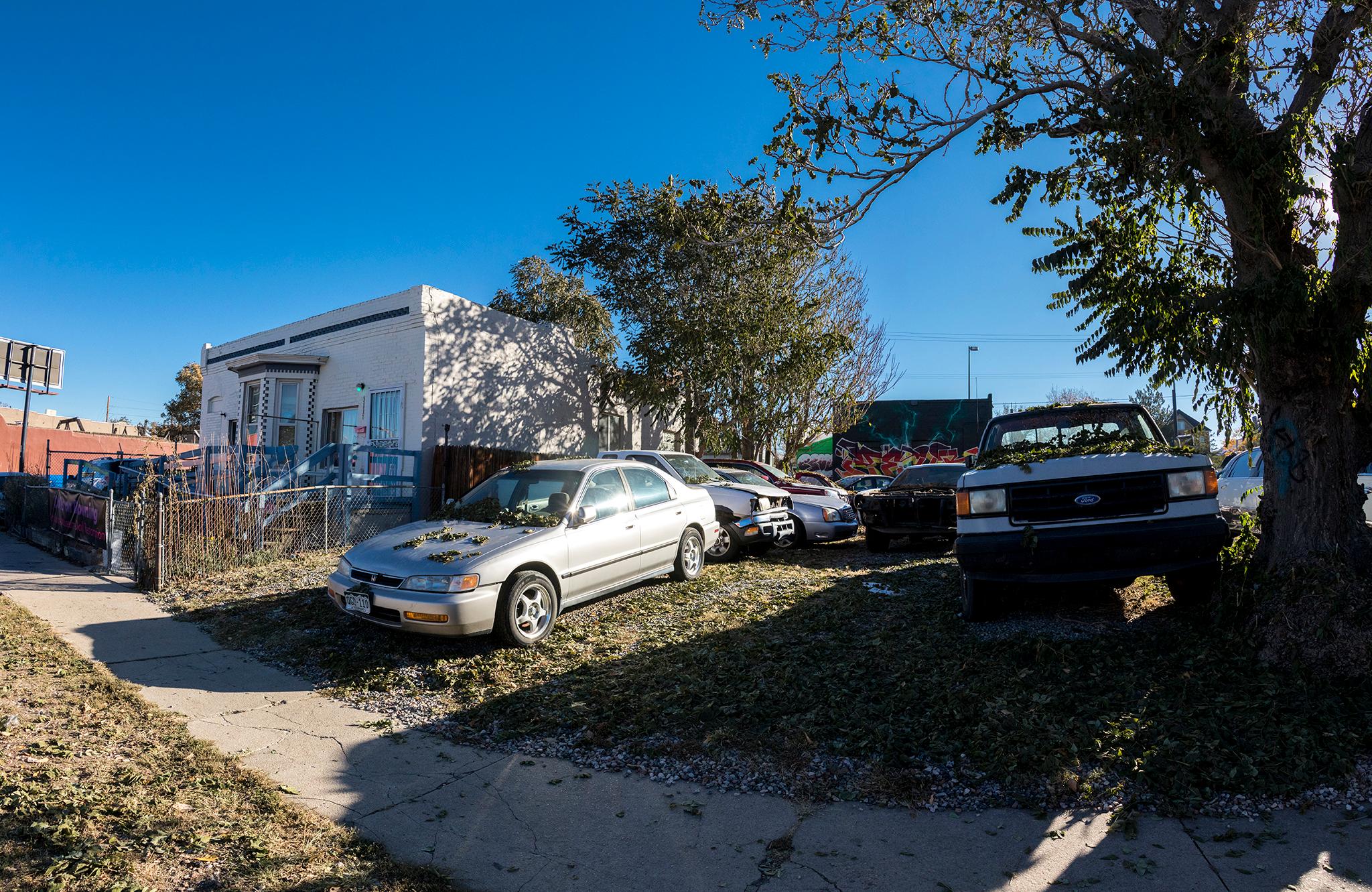
And then there's the infrastructure.
In order to complete the project the Lawrence curve will have to be squared off -- and Downing and Marion would become two-way streets.
The developer purchased roadways from CDOT in order to make this possible. Brooks says this is a win for the city because the road work was needed either way, and with this project, the developer will have to finance that work. CdeBaca questioned whose interests are being served when a developer is able to purchase land from a department like CDOT in order to complete a project.
Developers said that the change in the roadway will be a beneficial element to the neighborhood because it will create a safer pedestrian experience and ease traffic congestion. The area surrounding the development has been identified as part of the High-Injury Network of Denver which is a group of streets where the majority of Denver’s fatal accidents occur.
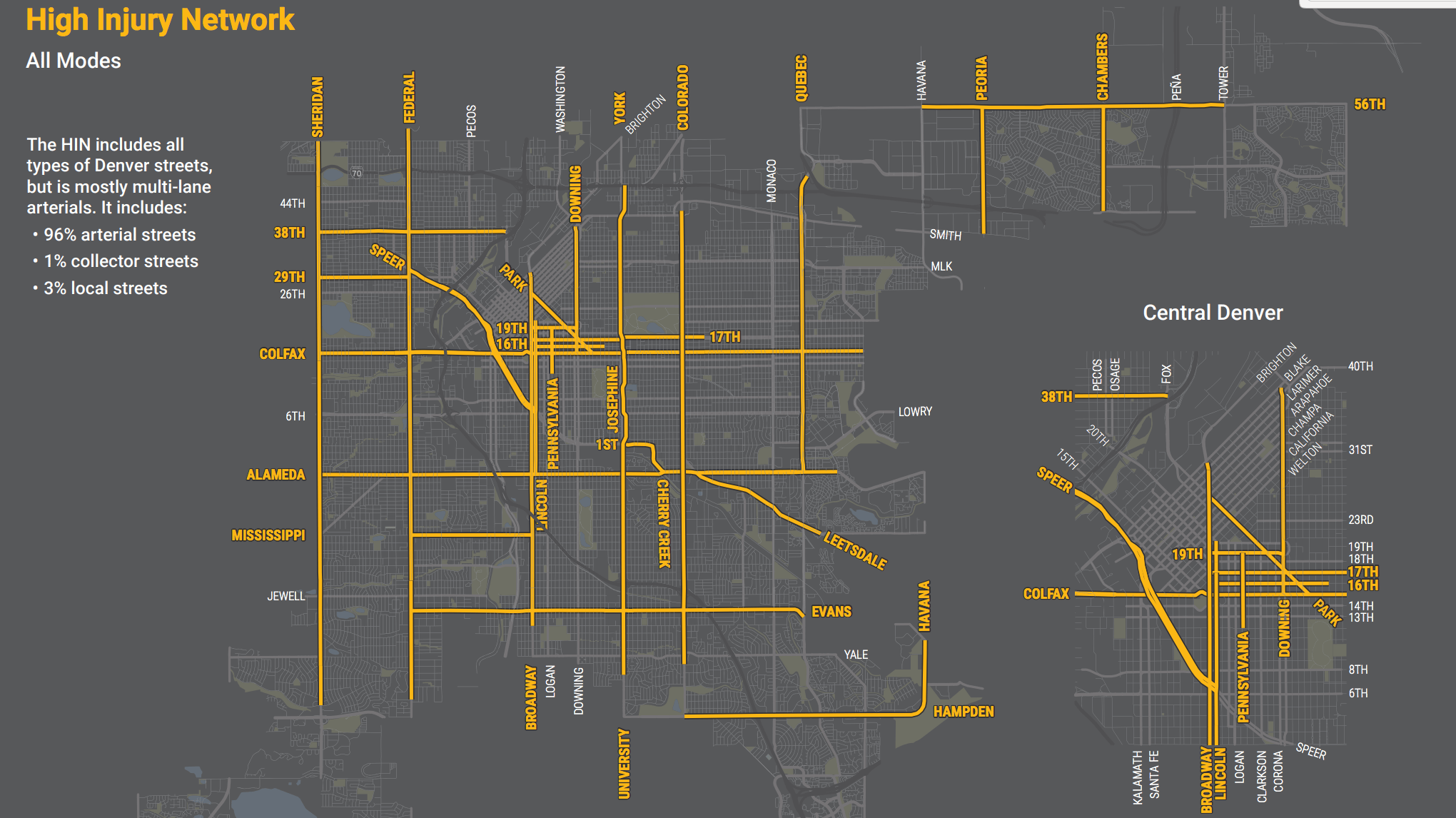
Donald Adetoye, a Cole resident who recently returned from Miami, said that overall the changes in infrastructure would be a win for the area, and this development should actually be the least of residents concerns.
“I think the changing these two one-way streets into two-way streets is going to help with the traffic," he said while crossing a busy Downing Street on Friday. "I think that this proposed development is far from the biggest issue this area’s having. This thing we're looking at right now," he said, referring to Hub Denver, "not to mention Industry, those projects are the ones that are less mindful this project actually seems mindful."
